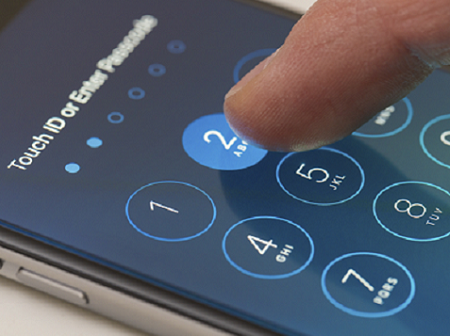Apple, FBI, Congress: 5 Burning Questions Raised
As Apple and the FBI struggle over matters of encryption, privacy and security, a House Judiciary Committee hearing helped to highlight several questions in need of answers.


iPhone Encryption: 5 Ways It's Changed Over Time
iPhone Encryption: 5 Ways It's Changed Over Time (Click image for larger view and slideshow.)
Engaging in a public contemplation of current encryption policy and practices, Apple SVP and general counsel Bruce Sewell presented testimony before the House Judiciary Committee March 1 as part of a hearing titled "The Encryption Tightrope: Balancing Americans' Security and Privacy."
FBI Director James Comey; Manhattan D.A. Cyrus Vance Jr., representing the National District Attorneys Association (NDAA); and Susan Landau, a professor at Worcester Polytechnic Institute, also gave testimony and answered questions before the committee.
By the conclusion of the hearing, it was clear that a number of ideas and practices will continue to be contested, and that headline-making issues won't be resolved until answers are determined. Questions brought up include:
1. Does the FBI have the right to determine how safe is "safe enough"?
Many of the frustrations of the NDAA and the FBI stem from an Apple software upgrade (with the introduction of iOS 8 in September 2014) that made device encryption the iPhone's default mode. In his testimony, Vance stated, "We want smartphone makers to offer the same strong encryption that Apple employed before iOS 8."
Apple's Sewell, in his testimony, asked: "Should the FBI be allowed to stop Apple, or any company, from offering the American people the most secure product it can make?"
The answer to that question could have ramifications for numerous industries.
2. Can the FBI force a company to produce a product?
Sewell testified that the FBI is asking Apple not to only unlock iPhones, but to "give them something we don't have."
He continued, "[They are asking us] to create an operating system that does not exist -- because it would be too dangerous. … Should the FBI have the right to compel a company to produce a product it doesn't already make, to the FBI's exact specifications, and for the FBI's use?"
Microsoft, Facebook, Google, and other major tech companies plan to file "friend of the court," or amicus, briefs, in support of Apple. If Apple can be made to create a product at the FBI's demand, so can any of them.
3. What security problem does Apple's latest encryption solution address that iOS 7 didn't?
Vance testified that with iOS 7 Apple was able to balance encryption and compliance with court orders.
"It is not entirely clear what cyber-security problem Apple's new encryption is intended to solve," Vance testified. "Individuals' phones were not being stolen and hacked into."
He continued, "Likewise, Apple has not explained how any software it may create for purposes of responding to search warrants -- software which Apple keeps in its sole possession -- would fall into 'the wrong hands.'"
Landau, in her testimony, provided context that offered a hint at the answer.
"The cyber-exploitation of US companies, in which attackers from overseas have reaped vast amounts of intellectual property, threatens the US economic strength," she testified. "In the last decade, the United States has been under an unprecedented attack, one that NSA Director Keith Alexander has called 'the greatest transfer of wealth in history.'"
4. Is this the last we'll hear of the All Writs Act?
In New York and California, local governments have tried to get Apple to unlock iPhones for them, citing the All Writs Act of 1789. Signed into law by George Washington, it insists that people or companies provide law enforcement with a reasonable amount of assistance.
On Tuesday, a Brooklyn magistrate judge ruled in favor if Apple, which had been brought to court on the grounds of the All Writs Act.
[Read iOS 9.3 to Snitch on Spying Bosses.]
"The government posits a reading [of the Act] so expansive -- and in particular, in such tension with the doctrine of separation of powers -- as to cast doubt on the [All Writs Act's] constitutionality if adopted," wrote Magistrate Judge James Orenstein.
On Tuesday, Judiciary Committee Chairman Bob Goodlatte (R-VA), read aloud a description of the All Writs Act that characterized it as an "antiquated statute … never intended to empower the courts to require a third party to develop new technology."
Goodlatte asked Comey his opinion of that characterization, to which Comey replied, in part, "Old doesn't mean bad."
5. Is the government going to allow "evidence-free zones"?
Current encryption on iPhones has locked the government out the devices and kept iPhone data away from the government, as well as from Apple. Tim Cook, in his Feb. 16 "Message to Customers," wrote, "We believe the contents of your iPhone are none of our business."
During the House Judiciary Committee meeting, Congressman Trey Gowdy (R-SC) pushed against this idea.
"I hear people advocating for these evidence-free zones. There are just going to be compartments of life where you are precluded from going to find evidence of anything. And I'm trying to determine whether we, as a society, are going to accept that," he said.
Indeed, we can all look forward to more discussion, and some answers.
About the Author
You May Also Like






